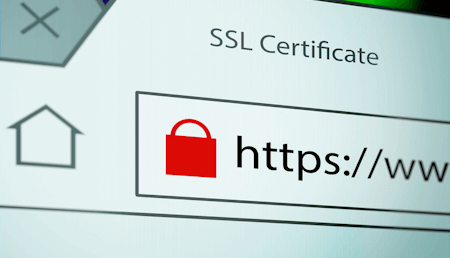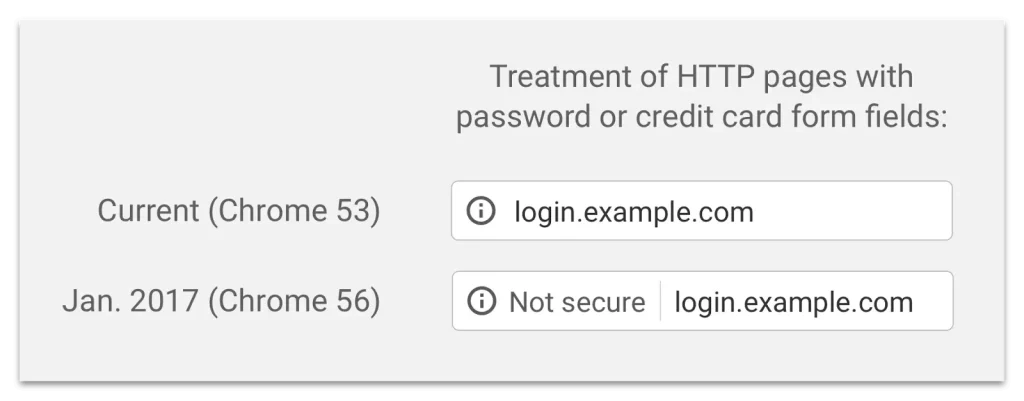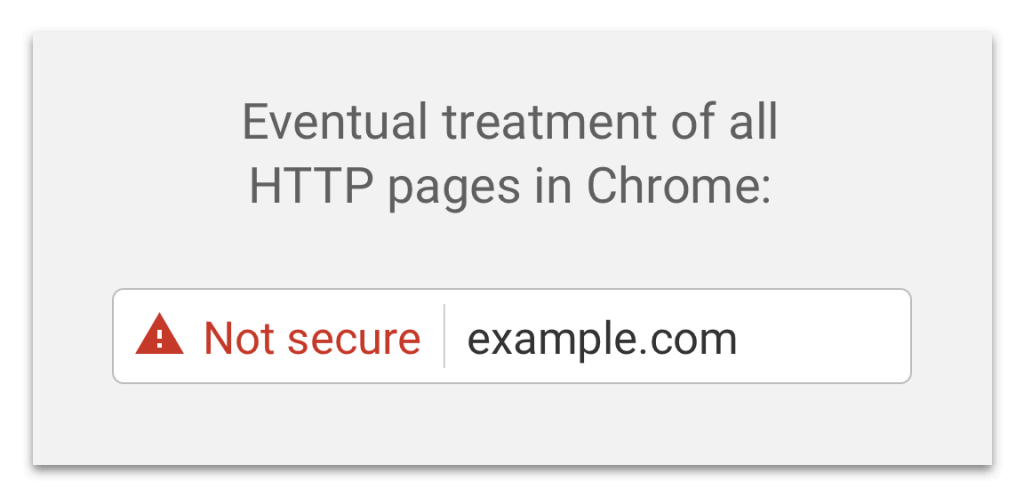
Blog
The importance of securing your website or web app with an SSL Secure Certificate
February 21, 2018
The importance of enabling SSL Security (HTTPS) on all of your websites
Google is constantly focused on internet security and in recent months have been enforcing more security in their popular Google Chrome browser. The Chrome browser is pushing security (HTTPS) and is now warning users in the browser just to the left of the website as shown in figure 1-1 below. This means all users of Google Chrome browser (the world’s most popular browser) now see this secure or non-secure badge for every website they visit that is not using HTTPS. Starting in July 2018 this warning will be large as shown in figure 1-2 and can’t be missed. This large warning can possibly scare people away from your website if it’s not protected with HTTPS!
SSL/TLS are encryption mechanisms that help protect the data from your browser to the server across the internet. This keeps any passwords, credit cards and other sensitive data away from prying eyes. In the old days this technology was mainly assigned to any form where credit cards were taken, but now with prying eyes everywhere, google suggests all websites turn on security by installing secure certificates. Once installed, browsers will no longer show the warning and show the green lock and “secure” as shown in figure 1-3


Why would you want to secure your website or web-based application?
There are several factors that would make you want to do this but first and foremost is security for your site and your users and it also helps your visitors to know you care about their security as well. There are other benefits to switching to HTTPS for your website such as increased speed, enhanced SEO or Google page rank and keeping your website or app user friendly. It’s a well know fact that Google has almost 60% of the browser market share which means over half of your users may now be “warned” that your website isn’t secure if you don’t do this. This new browser warning (figure 1-2) can literally scare away new and current users and make them less likely to come back. If you don’t enable HTTPS by installing a secure certificate, you could be pushing your online business slowly out of business!
What is a secure certificate?
A secure certificate or also known as an SSL certificate is a digital file that the web developer or webmaster installs on their web server to enable security. Once installed it creates and verifies the “chain of trust” from the CA or certificate authority, server and browser. It then enables the encryption (HTTPS) so your users can then browse securely, pay for services and other activities on the server and prevents your data and user data from falling into the wrong hands.

How do I make my site secure if I run a website or host a web-based app?
Easy, you can purchase and install a secure certificate for your domain on your web server or web-based application server. You can purchase SSL Certificates here or typically at your registrar or web host. There are many different levels of secure certificates, encryption and validation and it’s best to review what’s best for your business and your customers before you purchase a secure certificate. Overall pushing your websites and web-based applications will be a smarter move for your online business and will help protect both your business and your customers well into the future!